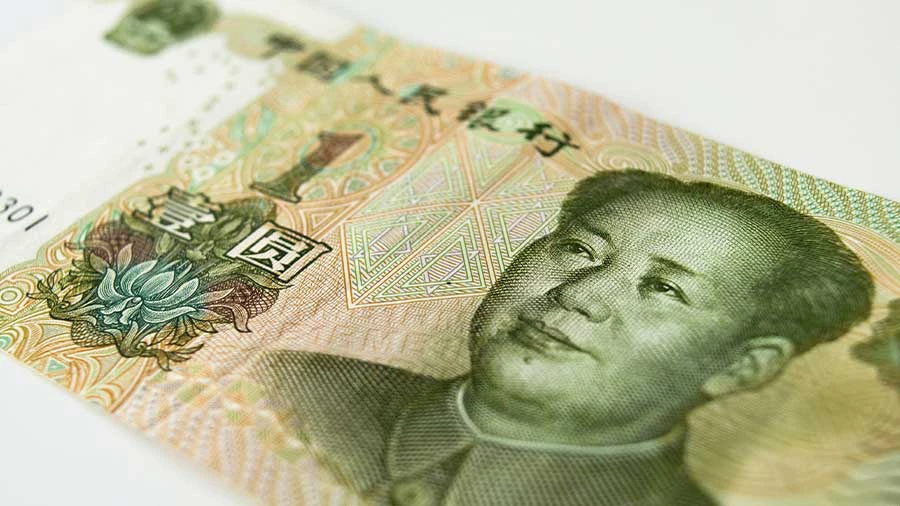China has issued a guidance note that summarizes the available tax incentives for businesses and enterprises in the education sector. We list these 28 tax incentives and their relevant policy basis.
On June 30, 2023, China’s State Taxation Administration (STA) issued the Guidance on Preferential Tax Policies to Support the Development of Education (hereinafter, “the Guidance”), which summarized the currently effective tax incentives offered to the education sector in the country.
According to the Guidance, there are in total 28 preferential tax policies supporting the development of education, categorized into three types:
- Tax incentives supporting various education and teaching activities;
- Tax incentives reducing the operating costs of educational institutions; and
- Tax incentives encouraging social forces to actively invest in education.
Despite prospects in China's for-profit tutoring sector being at an all-time low due to the government’s efforts to reform its education system and ease the burden on families and students, current policies in China point towards a favorable investment environment for vocational education.
A recent notable development that showcases China's commitment to opening up the vocational training industry to foreign direct investment (FDI) is the establishment of a wholly foreign-funded vocational training institution in Beijing in May this year.
This will interest both domestic and foreign businesses eyeing China’s education sector, as they seek to leverage potential tax incentives to reduce operating costs and capitalize on the opportunities available.
In this article, we look into the 28 tax incentives offered to education providers in China and briefly explain how to apply these preferential policies.
What are the 28 tax incentives available in China’s education sector?
| China's Tax Incentives to Support Education Sector | |||
| Category | Tax incentives | Eligibility | Policy basis |
| Tax incentives for supporting all kinds of educational and teaching activities | Educational services provided by schools engaged in academic education are exempt from value-added tax (VAT). | Schools engaged in academic education | Caishui [2016] No.36-Appendix III |
| Schools engaged in academic education are exempt from VAT for holding refresher classes and training courses. | Government institutions of higher, secondary, and primary education (excluding subordinate units) | Caishui [2016] No.36-Appendix III | |
| The academic education services provided by Sino-foreign cooperative schools are exempt from VAT. | Sino-foreign cooperative education | Caishui [2016] No.36-Appendix III | |
| Enterprises held by vocational schools engaged in relevant business activities are exempt from VAT. | Qualified enterprises established by government-run vocational schools | Caishui [2016] No.36-Appendix III | |
| Childcare and educational services provided by nurseries and kindergartens are exempt from VAT. | Nurseries and kindergartens (public and private) | Caishui [2016] No.36-Appendix III | |
| Educational services provided overseas are exempt from VAT. | Units and individuals within the territory of China | Caishui [2016] No.36-Appendix IV, STA Announcement [2016] No.29 | |
| Simple tax calculation for VAT on non-academic education services. | General taxpayers who provide non-academic education services | Caishui [2016] No.36-Appendix I, Caishui [2016] No.68 | |
| Simple tax calculation of VAT on educational auxiliary services. | General taxpayers who provide educational support services | Caishui [2016] No.36-Appendix I, Caishui [2016] No.140 | |
| Enterprises in the education industry shall refund the VAT credit in full. | Education industry enterprises (including individual businesses) | MOF STA Annoucement [2022] No.14, MOF STA Annoucement [2022] No.21 | |
| The income of non-profit organizations shall be exempted from corporate income tax (CIT). | Non-profit organizations | CIT Law, CIT Implementation Regulation, Caishui [2009] No.122, Caishui [2018] No.13 | |
| Special additional deductions from individual income tax (IIT) taxable income for expenditures on children's education. | Taxpayers whose children are receiving full-time education | IIT Law, Guofa [2018] No.41 | |
| Special additional deductions from IIT taxable income for continuing education expenditures. | Taxpayers who have received academic (degree) continuing education in China | IIT Law, Guofa [2018] No.42 | |
| Services provided by student work-study programs are exempt from VAT. | Students provide work-study services for income | Caishui [2016] No.36-Appendix III | |
| Tax incentives for reducing the operating costs of educational institutions | Real estate and land of schools, nurseries, and kindergartens for their own use are exempted from property tax and urban and township land use tax. | Various schools, nurseries, and kindergarten funded by the government or run by enterprises | Caishui [2004] No.39 |
| The cultivated land occupied by schools and kindergartens shall be exempted from the cultivated land occupation tax. | School, Kindergarten | Land Occupation Tax Law, Land Occupation Tax Implementation Regulation | |
| Non-profit schools shall be exempt from deed tax for the ownership of land and houses used for office, teaching, and scientific research. | Non-profit school | Deed Tax Law, MOF STA Annoucement [2021] No.23 | |
| Import tax exemption for relevant supplies imported by schools and other units. | Scientific research institutions, technological development institutions, schools, Party schools (administrative schools), libraries | Cai Guan Shui [2021] No.23, Cai Guan Shui [2021] No.24 | |
| Income from college students' apartments and canteens is exempt from VAT. | College student apartment, college student canteen | Caishui [2016] No.82 | |
| College student apartments are exempt from property tax. | College student apartment | Caishui [2019] No.14, MOF STA Announcement [2022] No.4 | |
| College student apartment rental contracts are exempt from stamp tax. | College student apartment, college student | Caishui [2019] No.14, MOF STA Announcement [2022] No.5 | |
| Teachers and researchers are exempt from taxation in accordance with relevant double tax avoidance treaties. | Teachers and researchers | Guo Shui Han [1999] No.37, STA Announcement [2011] No.42, STA Announcement [2016] No.91 | |
| Tax incentives for encouraging social forces to actively participate in the cause of education | IIT deduction for educational donations | Individuals who donate to educational causes | IIT Law, IIT Implementation Regulation |
| Transfer of property rights in which the property owner donates property to the school is exempt from stamp tax. | Parties to the property transfer documents | Stamp Tax Law, MOF STA Announcement [2022] No.22 | |
| Taxpayers who donate housing property rights and land use rights to educational undertakings are not subject to land appreciation tax. | The owner of the property, the owner of the land use right | Provisional Regulations of Land Appreciation Tax, Cai Shui Zi [1995] No.48 | |
| Education surcharge and local education surcharge credit for investment in vocational education by pilot enterprises with integration of industry and education. | Pilot enterprises included in the scope of the construction and cultivation of enterprises with integration of production and education | Caishui [2019] No.46, STA Announcement [2019] No.24 | |
| Deduction before CIT or IIT for donations for public welfare relief through China Education Development Foundation. | Enterprises, public institutions, social organizations, individuals, and other social forces | Caishui [2006] No.68 | |
| The interest income from national student loan is exempt from VAT. | Financial institutions that provide national student loan services | Caishui [2016] No.36-Appendix III | |
| Materials donated free of charge by overseas donors to various types of schools and other materials directly used in the cause of education shall be exempted from import taxes (tariffs and import VAT). | Donee (receiver of donation) | Caishui [2004] No.39, MOF GAC STA Announcement [2015] No.102 | |
How to enjoy these tax incentives in China?
China has simplified the procedures to enjoy tax incentives. For most preferential tax policies, taxpayers can self-assess if they are qualified to access the incentives and apply them when making the tax payment (that is, the time of pre-payment or final settlement, depending on the specific incentive) – without seeking approval from the local tax bureau.However, this does not mean taxpayers can enjoy tax incentives at will, either. For one, taxpayers must retain relevant documents for potential inspection from the tax bureaus. Second, some of the required documents may involve a special application and approval process with relevant government bureaus.
Enterprises are suggested to pay close attention to the laws and regulations listed in the above table for qualifications and procedures to enjoy access to the mentioned tax incentives.
Dezan Shira & Associates professionals are experienced in helping clients evaluate their eligibility for various tax incentives and applying relevant preferential tax policies to optimize tax costs. For more details, please contact China@dezshira.com.











